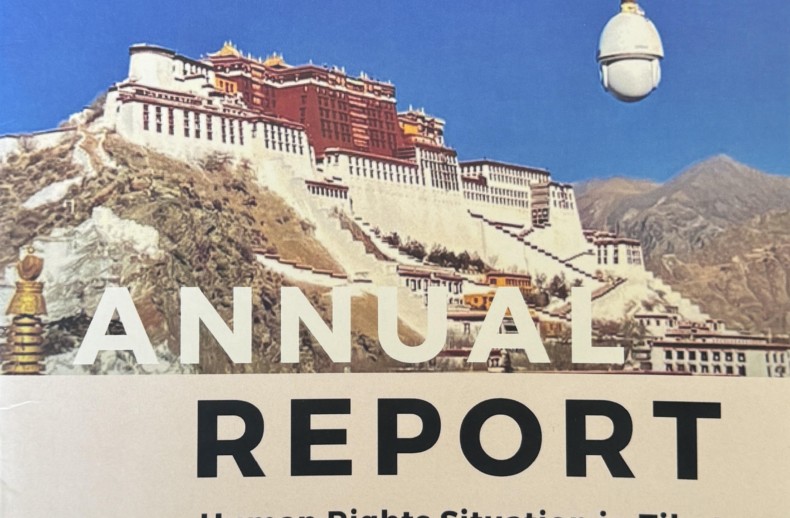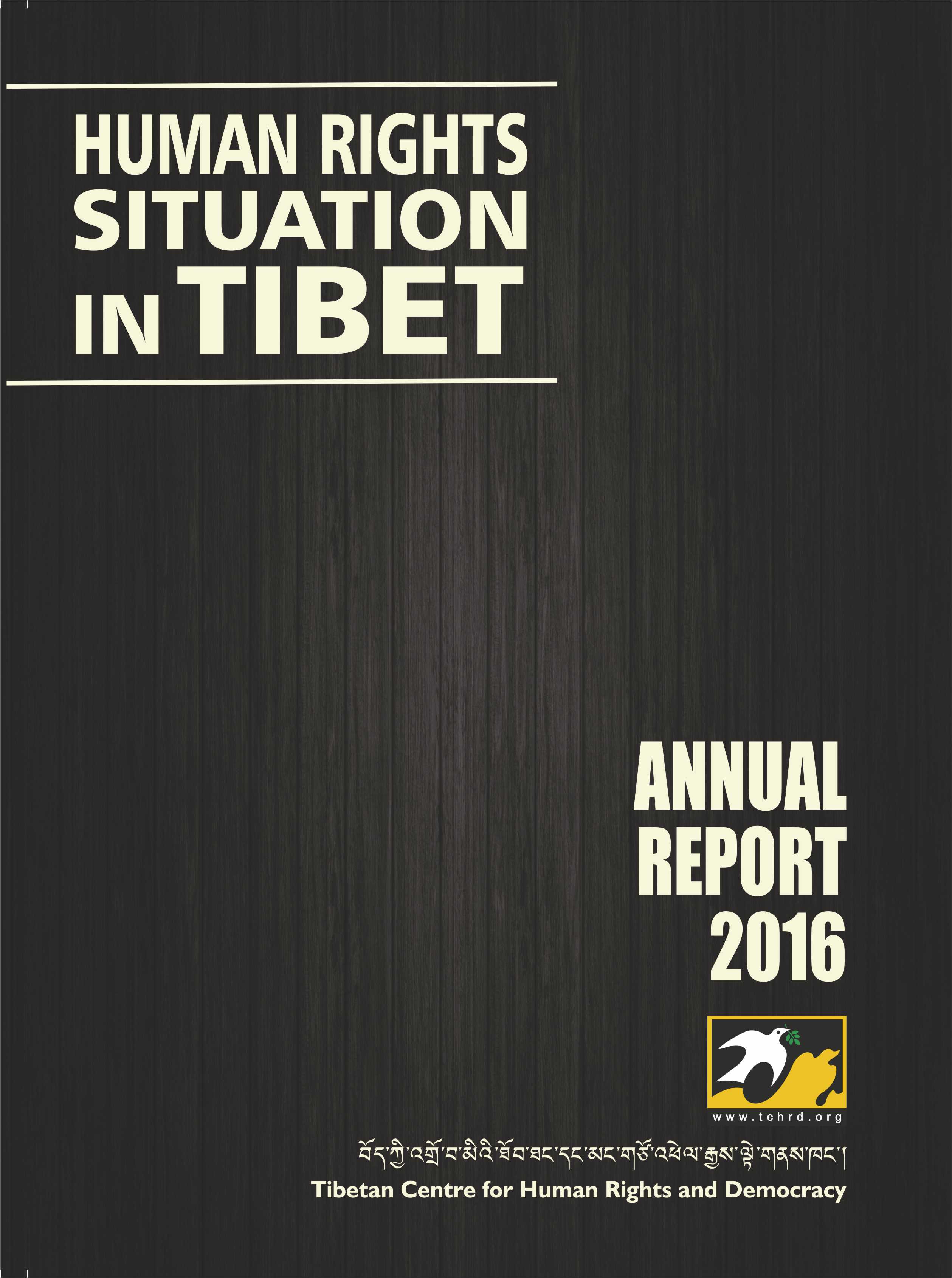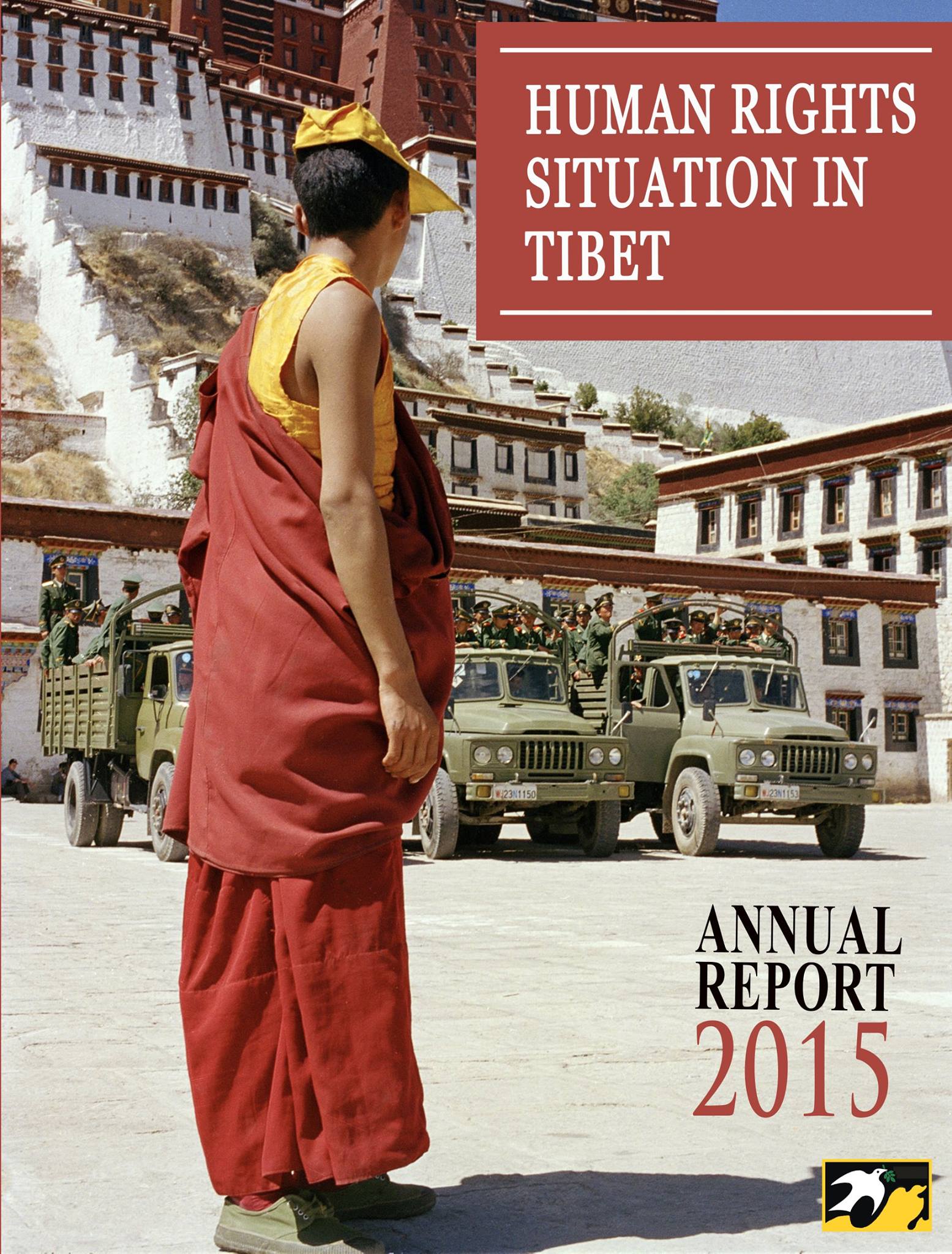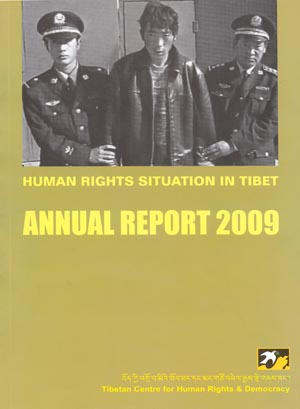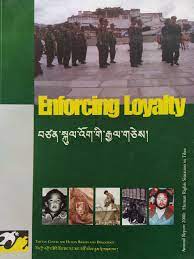Tibetan Centre for Human Rights and Democracy’s 2007 annual report finds cases of arbitrary arrests and detentions inside Tibet increased almost threefold compared to 2006 indicating a worsening of human rights situation in Tibet ahead of the 2008 Beijing Olympics
Year 2007 saw repression worsen in Tibet signaling a hardening attitude of China despite holding sixth round of talks between the envoys of the Dalai Lama envoys and Beijing, the Tibetan Centre for Human Rights and Democracy” target (TCHRD) stated in its 2007 annual report released here today.
The report titled- Human Rights Situation in Tibet: Annual Report 2007 notes “Through out the year, the Chinese authorities in occupied Tibet unleashed spate after spate of policy campaigns, regulations and decrees to subject Tibetans to intensified state controls over their human rights and fundamental freedoms,” The year round assessment of the human rights situation in Tibet finds Communist Chinese authorities committing severe violations of human rights in Tibet as a result of placing heightened security measures and cracking down heavily on incidences of peaceful protests by Tibetan people.
Not surprisingly, the report finds “cases of arbitrary arrest and detentions” increased almost threefold compared to previous year (2006), “suggesting a clear indication of the human rights situation worsening in Tibet”. The report documents 65 known cases of arbitrary arrests in 2007 alone out of the total 119 known Tibetan political prisoners, of which 43 are serving terms of more than ten years.
“The actual number could be even much higher,” TCHRD’s Director Mr Urgen Tenzin speculates, pointing at the lack of freedom as the key factor hindering more accurate monitoring of the situation inside Tibet. According to the report, “Chinese authorities routinely resorted to arbitrary arrests, imprisonment and torture in dealing with peaceful protests by Tibetans, which normally included displaying Tibetan flags, staging non-violent demonstrations, possessing pictures of the Dalai Lama, and posters calling for freedom of Tibet.” Although the so called Tibet Autonomous Region (TAR) is considered politically more sensitive region, interestingly TCHRD finds Kardze region outside of the TAR as “the most volatile Tibetan area in terms of political developments, for several successive years now”.
The report shows that half of the total 65 known cases of arbitrary arrests during 2007 were recorded from the Kardze region alone. The centre’s report puts peculiar note of the intensified repression placed upon the Tibetan Buddhist monasteries and nunneries, which have long been identified by Chinese authorities as the “hot bed of dissents” in Tibet. Accordingly, the report finds that 70% (80 out of the 119) of the known political prisoners are monks and nuns. The report says that “during 2007, religious freedom in Tibet took a major set back” after the Chinese authorities introduced two new religious regulations. “Tibet Autonomous Region Implementing Measures for the Regulation of Religious Affairs” and “Measures on the Reincarnation of Living Buddhas in Tibetan Buddhism”, the report says, were primarily aimed at subjecting “Tibetan Buddhism and its spiritual masters under intensified state control through legal conundrums”. Further, the report alleges that the Communist authorities regularly conducted ‘patriotic re-education’ and ‘love your country, love your religion’ political campaigns in the monastic institutions” and reinvigorated the ‘Patriotic education’ in various Tibetan areas during the year as a measure toward bringing the monastic communities under a tight official grip”.One of the major concerns raised in the report remains to be continuing arrival of new Tibet refugees after fleeing across the harsh Himalayan terrains, very often putting their lives into extreme risks.
In 2007, some 2,338 Tibetans managed to safely reach the Tibetan Reception Centre in Dharamshala, the seat of the Dalai Lama and the base of the Tibetan Government-in Exile. Of the total number of refugees, the report shows, around half of them were below the age of 18 seeking educational opportunities as a result of poor educational facilities in the rural areas of Tibet where about 75% of the Tibetan population reside. And where schools do exist, they have “biased (Chinese) curriculum”, the report exposes.
Persecution of several Tibetans in the eastern Tibet region following an open pro-independence and pro-Dalai Lama outcry in Lithang by a Tibetan nomad, Rongye Adrak that escalated into a mass Tibetan protests against Chinese authorities; closing down of Tibetans sites, online blogs and restrictions on internet and other media; destruction of statues of religious significance, especially those of Guru Rinpoche by Communist authorities; heightened security measures restricting Tibetans from taking part in religious activities and public celebrations; detaining and torturing school students by authorities in Amchok Bora Village in Labrang County; another shooting incident on the Nangpa La Pass; mass relocation of Tibetan herders affecting their traditional livelihood and further marginalization of Tibetans as a result of the new railway accelerating the Chinese population transfer into Tibet are some of the major cases extensively highlighted in the report categorised into Civil and Political Liberties, Religion, Education in Tibet and Development chapters. With the Beijing Olympic Games only a few months away in August 2008, TCHRD’s report seeks to “build up pressure and expose China’s human rights farce to the world”.
